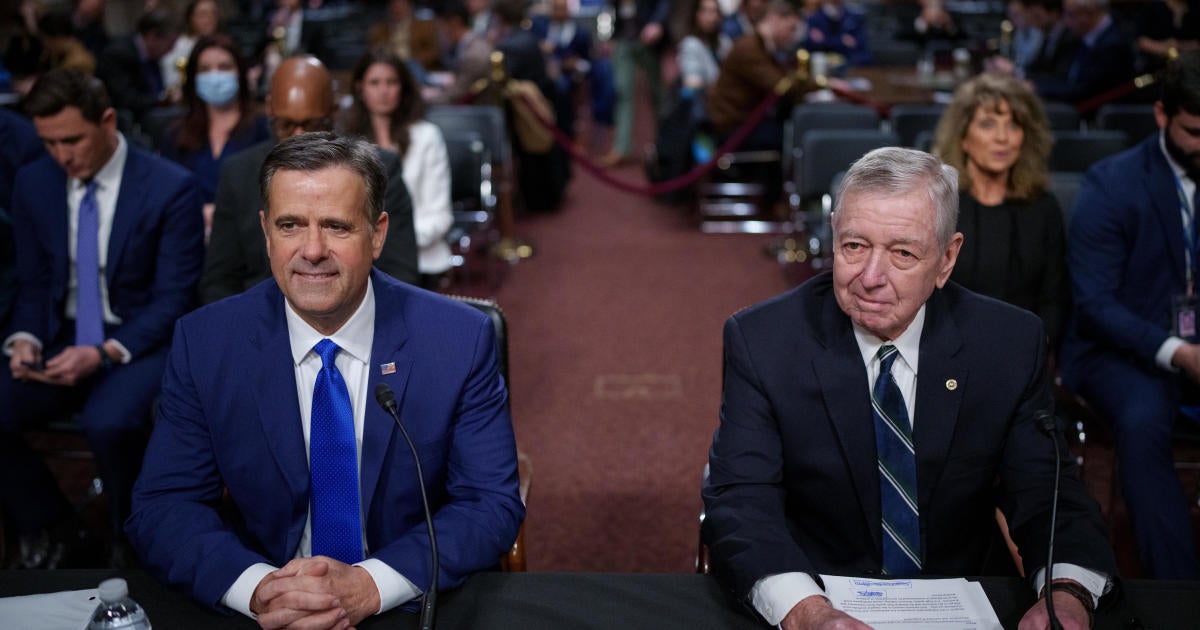Washington — John Ratcliffe is appearing before the Senate Intelligence Committee on Wednesday as he seeks to lead the CIA in the second Trump administration.
“Today, we face what may be the most challenging national security environment in our nation’s history,” Ratcliffe said, adding that the challenges “increase the necessity of confirming a CIA director who is prepared on day one to take them head-on.”
Ratcliffe, a former Texas congressman, served as director of national intelligence in the final months of President-elect Donald Trump’s first term. At that time, Trump initially picked Ratcliffe to lead the nation’s spy agencies earlier in his first term, but withdrew his name amid questions about his qualifications for the role. Months later, Trump again nominated Ratcliffe, and the Senate confirmed him as director of national intelligence without any support from Democrats.
Ratcliffe said in his opening remarks Wednesday that “for roughly a quarter of a century, I have devoted my professional life to U.S. national security.” And he promised that if confirmed, he would focus on “setting and communicating priorities and demanding relentless execution.”
Senate Intelligence Committee Chairman Tom Cotton kicked off the hearing by listing the ways in which the CIA must “get back to its roots,” adding that it “must overcome several challenges to do so.” He argued the CIA has become too bureaucratic and its analysis and priorities have become politicized, among other obstacles.
“Mr. Ratcliffe, you have a big job ahead of you,” Cotton, an Arkansas Republican, said. “The nation needs a strong capable and aggressive CIA.”
Sen. Mark Warner of Virginia, the top Democrat on the committee, said the CIA is facing an “unprecedented number of challenges,” from conflicts in Ukraine and Gaza to competition with China and the persistent threat of terrorism, which he said requires a “great deal of leadership.”
Warner also outlined the importance of ensuring the intelligence community feels “respected and valued,” amid what he called “underserved attacks” by President-elect Donald Trump. He told Ratcliffe he has an opportunity at his confirmation hearing to “reassure the men and women of the CIA that they not fear reprisal for being willing to speak truth to power.”
In Congress, Ratcliffe served on the House Intelligence Committee and House Judiciary Committee and was a staunch defender of Trump through his first impeachment and investigations into Russian election interference.
During his confirmation hearing in 2020, Ratcliffe vowed to deliver “objective and timely” intelligence to senior policymakers and to ensure that it was “collected, analyzed and reported without bias, prejudice or political influence.” He also disagreed with Trump about whether Russia meddled in the 2016 election, but declined to take a stance on what Russia’s desired outcome was.
Ratcliffe’s Nomination
Ratcliffe is considered to be a more traditional choice than some of Trump’s picks for other roles, since he has served in a Senate-confirmed position once already and has served in Congress.
As intelligence director, he was criticized by Democrats for declassifying in the final days of the 2020 presidential election Russian intelligence alleging damaging information about Democrats during the 2016 race even though he acknowledged it might not be true.
China is expected to be a central theme of Wednesday’s hearing. In December 2020, Ratcliffe wrote that China “poses the greatest threat to America today, and the greatest threat to democracy and freedom world-wide since World War II.” Ratcliffe, who was the nation’s spy chief at the time, said he had shifted resources in the intelligence budget to make China more of a priority.
“Beijing is preparing for an open-ended period of confrontation with the U.S. Washington should also be prepared. Leaders must work across partisan divides to understand the threat, speak about it openly, and take action to address it,” he wrote.

